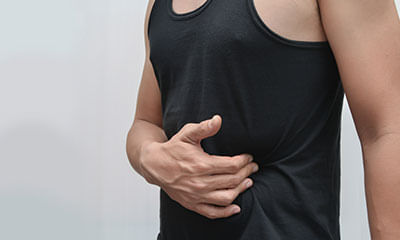Elderly And Kidney Diseases - What Precautions You Should Take?
Elderly and Kidney Diseases - What precautions you should take.
The percentage of elderly people, classified as those above 60 years of age, is expected to go up in India from 8% in 2015 to 19 % in 2050. Various challenges including managing their health issues have been highlighted in a report released by UN Population Fund India titled ‘caring for our elders: Early response India Ageing Report 2017’. So in the country where we are already facing scarcity of health infrastructure, we have to be more aware regarding the increasing health problems and what steps we can take as primary prevention to decrease the burden of diseases in ourselves and our near and dear ones.
Like heart diseases and osteoarthritis of knees, kidney diseases are now recognized as a major medical problem worldwide. In India, Global Burden Disease 2015 kidney diseases are ranked as the eighth leading cause of death.
Diabetes and Blood pressure are major contributors of kidney diseases in India; others include long term pain killer intake, infections and renal stones.
Respect Your Kidneys – What we should do?
Kidney diseases are emerging as one of the important causes of morbidity which will largely affect your quality of life. There are however several easy ways to reduce the risk of developing kidney disease.
Daily Exercise - Stay fit and active
Staying fit and active helps to reduce your blood pressure and achieve better sugar control and therefore reduces the risk of Chronic Kidney Disease. 20-30 min of brisk walking is recommended at least 5 days a week.
Keep good control of your Diabetes (Sugar)
Kidney damage from diabetes can be reduced or prevented if detected early. It is important to keep control of blood sugar levels as they decrease the progression of kidney damage.
Control Hypertension - Monitor your blood pressure
We all are aware that high blood pressure can lead to a stroke or heart attack; very few know that it is also one of most common cause of progression of kidney damage. So it’s not important which or how many tablets you are taking, the goal is control of blood pressure as per your age.
Eat healthy and keep your weight in check
This can help prevent diabetes, heart disease and other conditions associated with Chronic Kidney Disease.
Reduce your salt intake. The recommended sodium intake is 5-6 grams of salt per day (around a teaspoon). In order to reduce your salt intake, try and limit the amount of processed and restaurant food and do not add salt to food.
Maintain a healthy fluid intake
Although there is not a single measure we can prescribe all but we should consume sufficient water to maintain good hydration. Consuming plenty of fluid helps the kidneys clear sodium, urea and toxins but consuming excess water can also lead to state of fluid overload. So, always consult your nephrologist for exact amount recommended for you. In addition, people who have already had a kidney stone are advised to drink 2 to 3 litres of water daily to lessen the risk of forming a new stone.
Smoking slows the flow of blood to the kidneys. When less blood reaches the kidneys, less amount of toxins are removed. Smoking also increases the risk of kidney cancer significantly.
Do not take OTC (over-the-counter pills - pain killers and anti-acidity)on a regular basis
Common drugs such non-steroidal anti-inflammatory drugs like ibuprofen, diclofenac and even anti-acidity drugs like omeperazole are known to cause kidney damage if taken regularly and for long time. So, avoid taking these medicines for longer time without advice of your doctor.
‘High Risk’ factors – When you should get your kidneys evaluated
- you have diabetes for long time (especially if you are also having diabetic related eye problems)
- you have hypertension
- you are obese
- one of your parents or other family members suffers from kidney disease
- you are of African, Indian, or Aboriginal origin
‘Early yet alarming Symptoms’
- Froathing in urine
- Decreased urine output
- Increased frequency of micturition at night (Going for passing urine again and again at night hours)
- Swelling under eye lids and on ankles



+1.svg)
